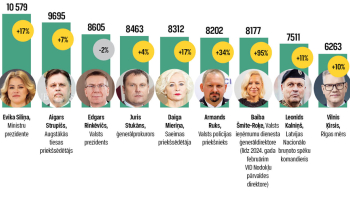
Ilustratīvs attēls no pixabay.com
That economic growth will be negative this year should now be a foregone conclusion. But by how much will GDP shrink?
Arnis Kluinis, in an article in nra.lv (in Latvian) has some rather scathing remarks to comments made by Mārtiņš Kazāks, Governor of the Bank of Latvia, about the possible GDP decline and is seemingly (?) settling scores dating back to the financial crisis. I have no idea what that is about but demanding precise forecasts at a time like this really doesn’t make sense – neither demanding them, nor trying to provide them.
Let us (that is, economists) be humble: We are always treading on thin ice when trying to make predictions in times of abrupt changes and/or when in uncharted territory and currently both apply. That said, we are being asked to gauge the impact of changed behaviour across the whole population – barely a single individual behaves as he/she did just a month ago in terms of earning, spending, saving, borrowing.













